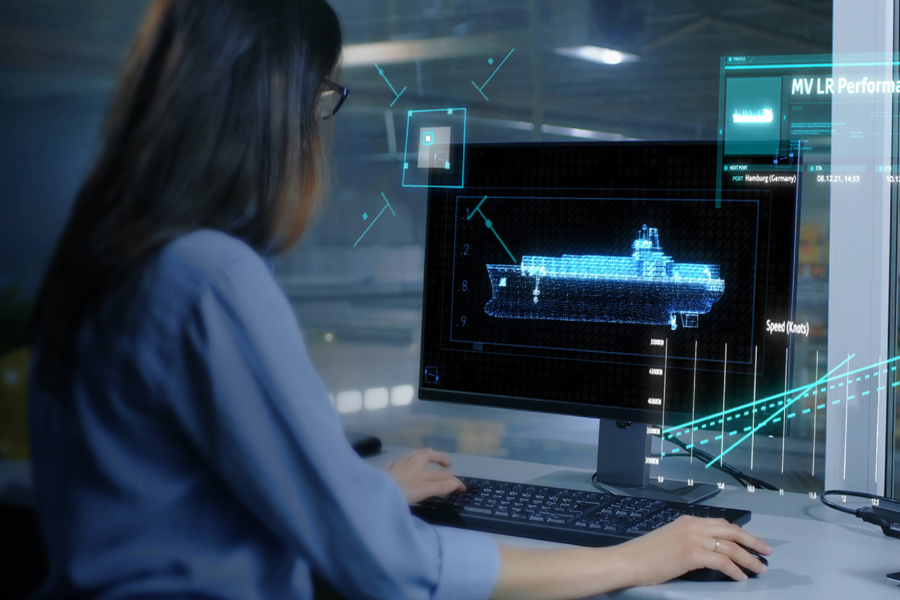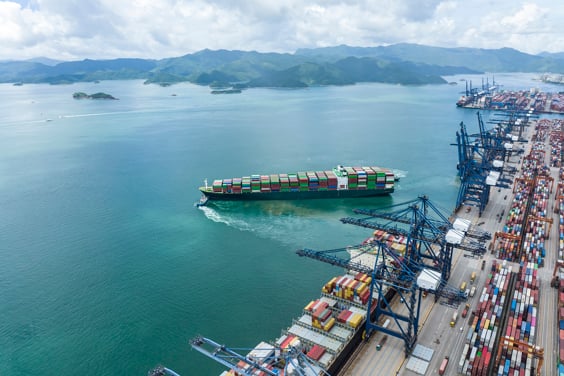
Digital transformation continues to reshape the maritime sector, enabling ship operators, shipyards, port authorities, and logistics providers to improve efficiency, safety, and compliance.
Maritime companies must embrace automation, predictive analytics, AI, and IoT-driven solutions to improve fleet performance, streamline supply chains, and improve compliance.
In addition, global decarbonisation and emissions reduction initiatives require shipping to adopt advanced data analytics, voyage optimisation tools, and digital monitoring systems to track and report environmental performance accurately. Digitalisation is therefore critical for maritime organisations to stay competitive and compliant through tightening regulations through smart shipping technologies and data-driven decision-making.
Industry Assessment
Lloyd’s Register (LR) has conducted a first-of-its-kind, comprehensive study to assess the industry’s progress toward a net-zero future for the energy transition and towards parity with terrestrial homes and offices in the digital transition.
The findings of these parallel studies are presented through barometer gauges (for eg. a Digital Barometer) illustrating the trajectory of each transition in line with net zero ambitions on a scale from full alignment to an unattainable transition. Each transition is further broken down into the five key components of the maritime transition identified in the Economist Impact’s Global Maritime Trends 2050 Report, commissioned by LR and the LR Foundation. These components include internal and external factors affecting the pace of maritime decarbonisation, and have their own barometer readings to direct industry attention to areas in need of support.
By studying technical characteristics, technology readiness, capital and operational expenditures of digital solutions, LR builds payback models to evaluate the investment viability. LR also supports you choose software by assessing existing system strengths to define clear requirements for a new solution, establishing functional criteria for vessel performance, and finally conducting a market scan, evaluating available solutions against these requirements and shortlisting options based on their compliance.
Without a clear digital strategy, maritime businesses risk falling behind competitors, facing regulatory penalties, and missing opportunities for cost savings and operational improvements.
Why LR
LR helps maritime organisations define, implement, and improve their digital strategy and transformation journey by assessing digital maturity, and evaluating existing technologies and capabilities to find gaps and opportunities for improvement with solutions including OneOcean’s suite of software and LR’s free developed the Digital Maturity Index (DMI).
LR helps your organisation:
- Design tailored digital roadmaps
- Integrate legacy systems
- Reduce cybersecurity risks
- Integrate decarbonisation-focused technologies
- Upskill you workforce
- Integrate AI-driven fuel efficiency solutions
- Make systems interoperable
- Integrate emissions monitoring platforms
- Manage the costs of digital transformation
- Integrate alternative propulsion system analytics
Examples of work
LR conducted a comprehensive IT and Digital infrastructure assessment, evaluating servers, storage systems, network configurations, and data management practices, to support a transaction made by a large UAE-based offshore fabrication shipyard. LR reviewed documentation, automated inventory tools, and interviewed key stakeholders to validate findings.
The assessment included analysis of critical software systems, identified security concerns, and reviewed backup and disaster recovery processes. Additionally, the team examined the IT organisational structure, assessed training gaps, and evaluated IT financials, vendor contracts, and compliance frameworks. Findings informed strategic recommendations to improve system efficiency and digital security, and align digital capabilities with the shipyard's operational goals.

 Digital transformation & automation
Digital transformation & automation








